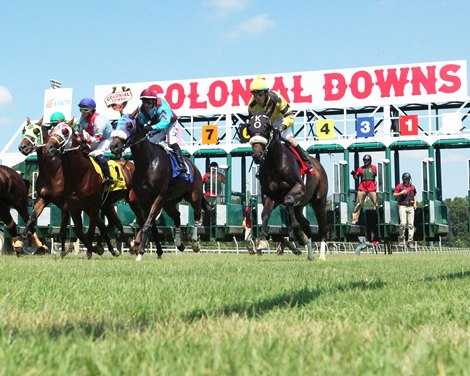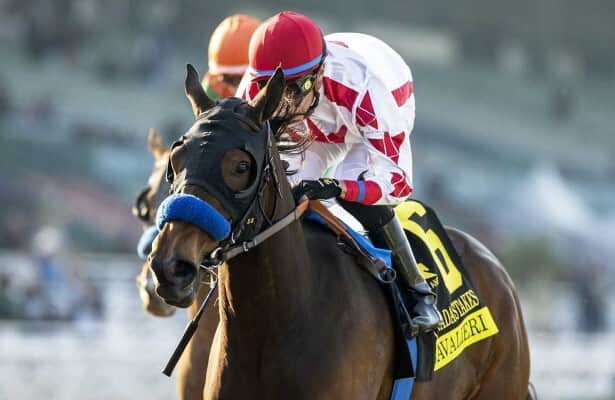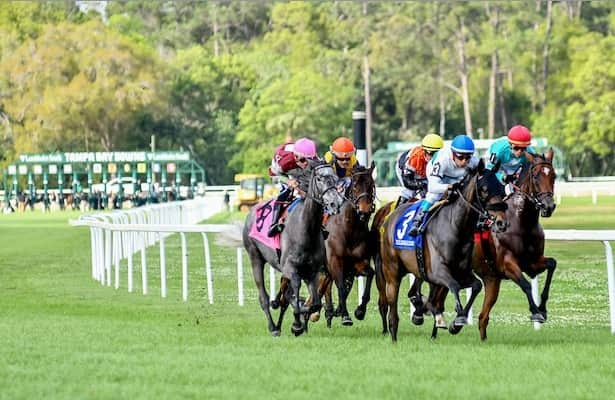With the success of its historical horse racing operations in Virginia helping the company to a record-breaking third quarter, Churchill Downs Inc. officials expressed confidence Oct. 24 in plans to expand the racing calendar in the state.
Meeting with analysts and investors in a conference call going over those third-quarter results, CDI CEO Bill Carstanjen expressed confidence that an expanded racing program that will go from 27 dates this year to 44 next year and then 50 in 2026 can work for participants, racing-related industry in Virginia, the state, and the company.
Carstanjen said CDI already has shown, in Kentucky, an ability to use historical horse racing to improve the racing product and aims to do the same in Virginia at its Colonial Downs racetrack.
“We like the complexity of an ecosystem like this. We understand how all this fits together,” Carstanjen said. “We understand the racing. We believe in the racing.
“When you introduce good content into the racing ecosystem, we have several ways to capture (revenue). We can capture that with on-track activity—sponsorships and other things such as attendance, and wagering on-track. But we can also capture it through simulcasting, and in particular, online wagering on horse racing, including our own TwinSpires (advance-deposit wagering). So I think as we introduce higher quality racing and Derby prep racing, it will improve the performance.”
In August Colonial Downs announced that the 2025 Virginia Derby (G2) will be moved from turf to dirt and will be moved on the calendar to March 15 to serve as a Kentucky Derby (G1) prep race. It will anchor a four-day spring meet at Colonial.
In a release after that announcement, Virginia Speaker of the House Don Scott said, “It is exciting that the Road to the Kentucky Derby will now run through Virginia. Churchill Downs has elevated the stature and economic impact of Thoroughbred racing in the Commonwealth while creating jobs, generating significant tax revenue in communities around the state, and offering race fans a memorable experience at the track.”
Carstanjen said that when Virginia lawmakers approved HHR, they wanted it to fuel the racing schedule.
“Virginia is a jurisdiction that has a storied history with Thoroughbred racing but that activity largely disappeared. All the race tracks had closed and (lawmakers) wanted (racing) back. They wanted that agricultural component and that industry back in the state,” Carstanjen said. “Of course, it’s a core component of our property, and it goes back to one of our tenets of what we look for.
“It’s part of the promise we have with the state that we will build the industry, because not only is it of some improvement to our bottom line, it drives economic activity throughout the rural regions of the state and across the training community, the farms, the feed providers and all of the other parts of the ecosystem.”
Carstanjen said Virginia has set up a strong model and the company would love to see more race dates added over time, in conjunction with added HHR. He said, “Virginia has been a great investment and business environment for us, and we look forward to expanding our footprint and partnership with the commonwealth.”












